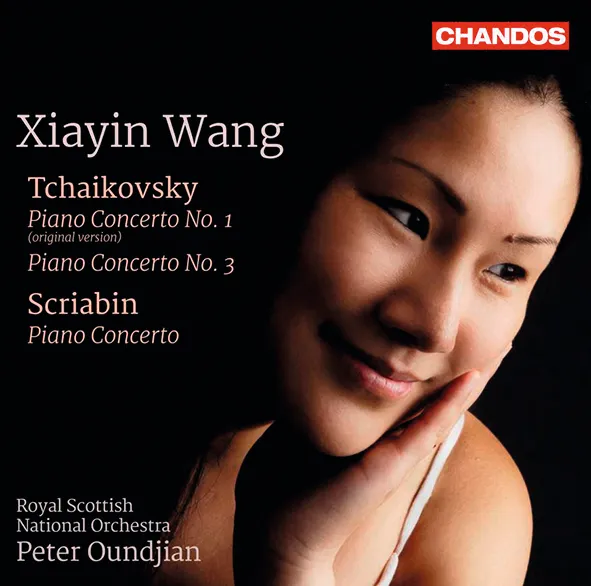
Tchaikovsky Piano Concertos Nos 1 & 3; Scriabin Piano Concerto Xiayin Wang (piano); Royal Scottish National Orchestra/Peter Oundjian Chandos CHSA 5216 (hybrid CD/SACD) 75:08 mins
Despite penning at least three indisputable concerto masterpieces, it was a genre that Tchaikovsky was notoriously unlucky with – at least initially. His Second Piano Concerto (played complete by Xiayin Wang on CHSA 5167) was until comparatively recently invariably heard in a highly condensed edition by Alexander Siloti; his Violin Concerto was notoriously dismissed as ‘music that stinks in the ear’, while his Variations on a Rococo Theme for cello and orchestra is still performed mainly using Wilhelm Fitzenhagen’s re-ordering and excisions.
Xiayin Wang here performs the original version of the First Concerto. Thankfully, following Nikolay Rubinstein’s infamous decimation of that work, Tchaikovsky stuck to his guns and changed very little, so that only the keenest of listeners will notice any substantial differences here – interestingly, Wang elects to play those famous opening chords straight rather than arpeggiated, as in Kirill Gerstein’s recording of the 1869 edition (Myrios, 2015). More importantly, she encompasses Tchaikovsky’s virtuoso writing with an arresting poetic impulse and thrilling depth of tone, captured imposingly by Chandos’s exemplary engineering and matched by deeply committed playing from the Royal Scottish National Orchestra under its former music director Peter Oundjian. Competition is almost impossibly formidable in the First Concerto, but thins out considerably for the one-movement Third, in which Wang’s impassioned eloquence and the RSNO’s high-octane support prove every bit as vital as established recordings from Peter Donohoe, Stephen Hough and Mikhail Pletnev. Arguably finest of all is the account of the Scriabin Concerto that captures the music’s youthful ingenuousness and spontaneity with a captivating ardour matched only by Stanislav Neuhaus’s incandescent 1970 recording for Melodiya.
Julian Haylock